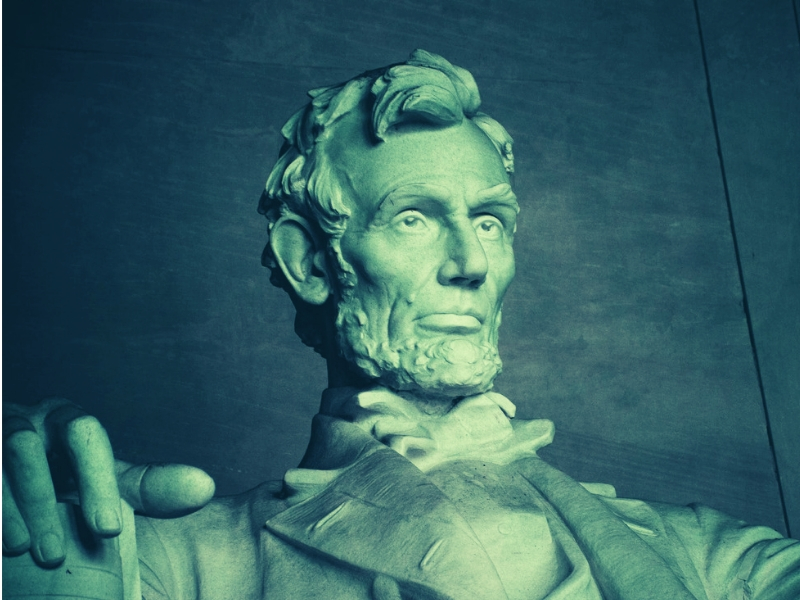Abraham Lincoln was the 16th President of the United States of America, from 1861 till his assassination in April 1865. His rise from humble beginnings to achieving the highest office in the land is a remarkable story that deserves a revisit. As the President of USA, he led the nation through the Civil War, its bloodiest war and political crisis. During his term as the President, he strengthened the federal government, and also modernised the economy. He was also the emancipator of slaves. On the occasion of his 210nd birth anniversary, let’s take a look at some interesting facts about this great leader.
- Lincoln was born on February 12, 1809 in a one-room log cabin in Hardin County, Kentucky. He was the second child of Thomas and Nancy Hanks Lincoln.
- His mother died of tremetol (milk sickness) at age 34, on October 5, 1818. At that time Lincoln was barely nine years old.
- Lincoln’s formal schooling was only limited to three brief periods in local schools. This is because he had to work constantly to support his family financially.
- During his teenage years, Lincoln shouldered the responsibility of his family chores. In fact until he was 21, he contributed his earnings to his father.
- In 1830, his family moved to Macon County in southern Illinois, while Lincoln got a job working on a river flatboat hauling freight down the Mississippi River to New Orleans.
- He also worked as a shopkeeper and a postmaster.
- Lincoln got involved in local politics as a supporter of the Whig Party, winning election to the Illinois state legislature in 1834.
- Lincoln was a self-taught person. He learnt Law and passed the bar examination in the 1836. For the next few years, he worked as a lawyer, and earned a great reputation. His clients came from all walks of life.
- He married Mary Todd in 1842.
- As a Whig Party leader, he served eight years in the state legislature and two in Congress, after which he resumed his law practice.
- In 1858, Lincoln contested against Stephen A. Douglas for the office of senator. He lost the election, but in debating with Douglas he gained a national reputation that won him the Republican nomination for President in 1860.
- On November 6, 1860, Lincoln was elected the 16th president of the United States.
- During his tenure as the President, he brought many land mark developments in the nation. As the President, he built the Republican Party into a strong national organisation.
- The Homestead Act of 1862 was passed during Lincoln’s presidency. This act gave the applicant ownership of land at little or no cost. According to this Act, anyone who had never taken up arms against the US government including freed slaves and women, and was 21 years or older, or the head of a family, could file an application to claim a federal land grant. The occupant had to reside on the land for five years, and show evidence of having made improvements.
- On May 15, 1862, Abraham Lincoln established the independent Department of Agriculture. Till date the USDA is responsible for developing and executing federal government policy on farming, agriculture, forestry, and food.
- On July 1, 1862, Lincoln signed the Revenue Act of 1862 which introduced a system where taxpayers were separated into multiple categories according to their incomes and taxed accordingly.
- In one of the major developments that took place on January 1, 1863, Lincoln issued the Emancipation Proclamation which began the procedure for freeing the slaves in America. The proclamation, which was issued during the American Civil War, allowed the Black soldiers to fight for the Union against the Confederacy.
- Another famous Act that brought forward the string financial network in the country, is the National Banking Act which created the United States National Banking System providing a strong financial network to the country.
- Lincoln faced extraordinary pressures during the Civil War that included the huge casualties on the battlefield, generals who were not ready to fight, opposition from groups like the Copperheads or Peace Democrats and assassination threats. Despite all this, Lincoln was firm on his resolve to preserve the Union.
- On April 14, 1865, Lincoln was assassinated at Ford’s Theatre in Washington by John Wilkes Booth – a well known stage actor who was a staunch supporter of slavery and the Confederacy during the American Civil War.



























